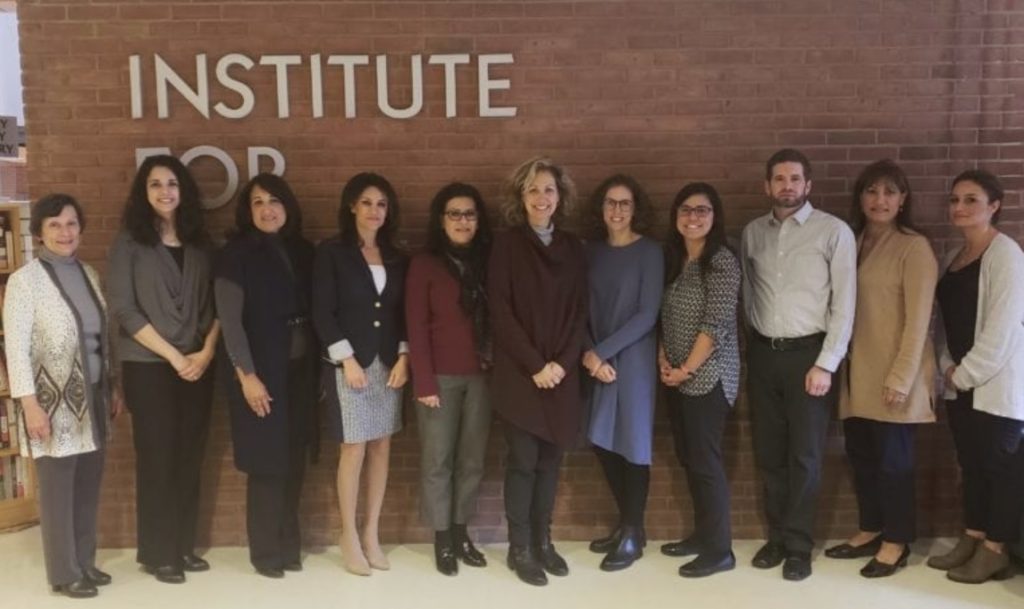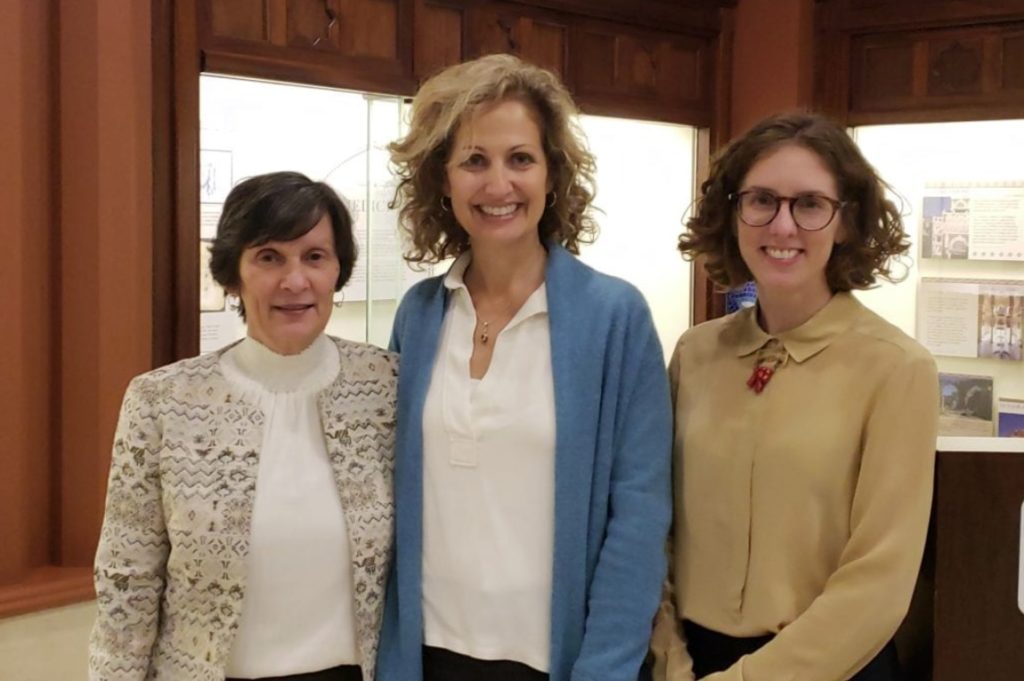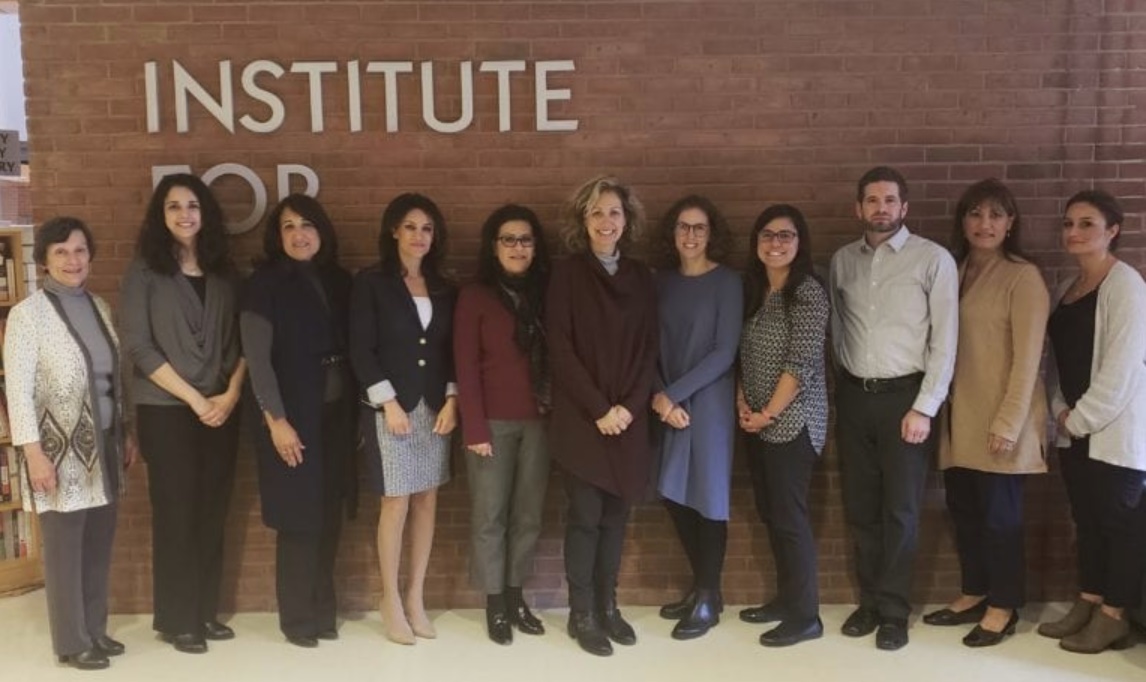by Hassan Abbas. This article originally appeared in The Arab American News.

Photo courtesy: Michigan Center for Contextual Factors in Alzheimer’s Disease (MCCFAD)
DEARBORN HEIGHTS — The Michigan Center for Contextual Factors in Alzheimer’s Disease (MCCFAD) is a newly formed Resource Center for Minority Aging Research (RCMAR), housed at the University of Michigan and funded by the National Institute on Aging.
The center partners with Michigan State University, Wayne State University and Eastern Michigan University to address issues that surround Alzheimer’s Disease and Related Dementias (ADRD). It shares what is known about ADRD to create awareness, share resources and ultimately promote good health and well-being. It especially engages with the Middle Eastern/Arab American (ME/AA) communities in Metro Detroit and Latino communities in Grand Rapids.
As part of its outreach and awareness efforts, it holds educational events for ME/AA and Latino communities in Metro Detroit and beyond. One such event was organized in Dearborn Heights at the Islamic Institute of America on February 15. The event was free and focused on managing stress and effective communication strategies in caring for a family member with ADRD.
Some 5.7 million people in the U.S. live with Alzheimer’s disease, with 16.1 million people providing unpaid care for individuals with Alzheimer’s or other dementias. Alzheimer’s is not a normal part of aging and although there is no cure, there are ways to lower risk.
The center practices an innovative approach to ADRD-related social and behavioral science research among ME/AA communities, connecting factors such as social and economic disparities to its aims of improving care-giving, research on lowering risk factors and, more importantly, dispelling stigma regarding Alzheimer’s disease. It also tries to develop a more diverse research workforce dedicated to healthy aging.
Stigma around the disease exists in part because of the lack of public awareness and understanding of the condition. Stigma may add to the burden of Alzheimer’s disease as it can prevent individuals and their families from talking with a health-care provider when symptoms are present, receiving an early diagnosis or any diagnosis, benefiting from available treatments and developing a support system.
It can also prevent patients from living healthy fulfilling lives, ensuring plans are in place for financial matters, planning for future care — including plans for medical care, long-term care and end-of-life care — and participating in research such as clinical trials.

Center Directors (left to right) Dr. Toni Antonucci, Dr. Kristine Ajrouch and Dr. Laura Zahodne.
Part of MCCFAD’s approach is to bring in health economics and culturally sensitive care into its research framework, thereby making the center’s core methodology quite relevant to ME/AA communities.
“Health economics is meant to draw attention to costs associated with ADRD and their risk factors, especially for minority populations,” MCCFAD Director Dr. Kristine Ajrouch told The Arab American News. “MCCFAD focuses on how social and economic disparities affect inequalities in health across the lifespan, specifically in aging, cognitive decline and dementia.
“Culturally-sensitive care emphasizes balancing informal and formal care to best meet family needs that are consistent with cultural values,” Ajrouch added. “The caregiver role is associated with burden and adverse effects on psychological and physical health.
“Caregiving burden can vary according to the caregiver’s cultural context because of different values, social support and coping styles. Among ME/AA, the combination of cultural expectations along with the demands of current roles including worker, parent and spouse, as well as general community roles, create tension within families.”
Ajrouch explained that this tension puts both older adults and family members who care for them at risk for poor well-being, especially during a demanding care situation such as ADRD.
“This is important because ME/AA are a rapidly-growing population that in coming years will include significant numbers of older adults with limited access to social services due to language and cultural barriers and Metro Detroit is home to the largest and most visible Arab American community in the U.S.”
Ajrouch is leading an effort, in partnership with the Arab Community Center for Economic and Social Services (ACCESS) and the Alzheimer’s Association, to adapt a program meant to support ME/AA families as they care for members living with ADRD. This program is scheduled to be offered in March at ACCESS and will focus on providing information and strategies to help community members as they care of family members with ADRD.
MCCFAD monthly Community Coffee Times, which take place at different locations throughout the Metro Detroit area, offer accessible opportunities to help families understand ADRD and for overcoming the stigma around the disease. These community forums are organized to bring in experts, complete with Arabic translations, who provide the latest information on ADRD, followed by a Q&A. Community Coffee Times are meant to engage the community through concrete examples/illustrations of ADRD and the situations they bring.
Further, the MCCFAD website will soon be available to community members, where they will be able to find information and resources related to ADRD, with some materials also translated into Arabic.
The Alzheimer’s Association (https://www.alz.org/) has a 24/7 helpline at 800-272-3900, which includes an Arabic language option.
Hassan Abbas wrote this article with the support of a journalism fellowship from the Gerontological Society of America, Journalists Network on Generations and the Retirement Research Foundation.
The opinions expressed in this article are those of the author and do not necessarily reflect those of the Diverse Elders Coalition.

